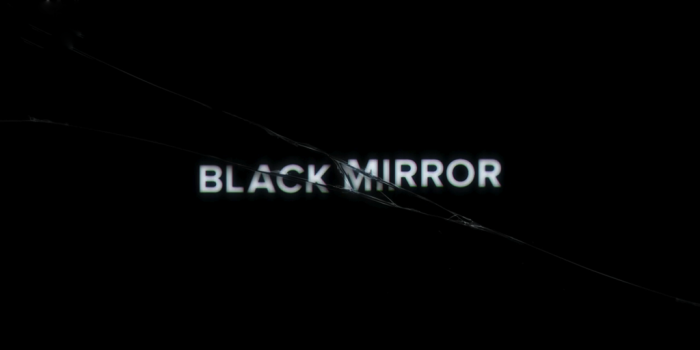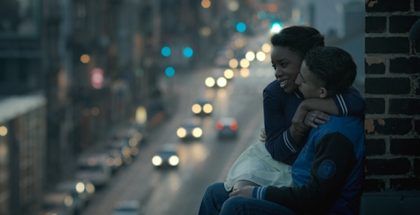10 things we’ve learned from Charlie Brooker’s Black Mirror
David Farnor | On 01, Oct 2016
Season 6 premieres on 15th June 2023.
With the return of Black Mirror to our screens, Charlie Brooker’s Twilight Zone for the Twitter age has tackled everything from political engagement to relationships and all the pixels in between with a harsh, satirical hand. The Entire History of You, the climax of Season 1’s anthology, was promptly optioned by Robert Downey Jr. for a feature film adaptation, while none other than Jon Hamm starred in 2014’s seasonal special.
The series’ arrival on Netflix in the US prompted a deluge of praise and excitement – and, ultimately, several seasons of the series as a Netflix original. That response only emphasises how much Black Mirror has tapped into a universal nerve in society, combining its fevered love of new technology with its most neurotic digital fears; a topicality delivered with detached cynicism that, even in its weaker instalments, feels bleakly relevant.
Never seen Black Mirror? Let’s go through a recap of how messed-up humanity has become, as seen through the show’s darkly satirical lens. Here are 10 things we’ve learned from Black Mirror:
1. Black mirrors are everywhere
Did you know that you can use your phone or tablet as a mirror? That’s where Charlie Brooker got the title for his show. Not from an app that turns the screen silver, but by turning the device off altogether. The first thing you see when you turn your phone off? Your mug staring right back at yourself. Unsubtle? Perhaps. But you’ll never be able to check your hair on the train again without feeling like even more of a fool.
2. People will watch anything
Whether it’s a Prime Minister and a pig (Episode 1 – designed for maximum shock) or an X Factor-style entertainment contest, people will watch anything that’s put in front of them. In fact, in Episode 2 (starring Psychoville and The Fades standout Daniel Kaluuya), people define themselves by it, their whole aim in a dystopian future world (where we’re surrounded by screens at every waking moment) being to make it on Hot Shots and become famous. Before you can say “Isn’t reality TV bad?”, though, Black Mirror fast forwards to Episode 5, White Bear, where trial by media in our TV and web-saturated civilisation is taken to its logical conclusion: a brutal, endless spectator sport. Yes, people will watch anything. Even a TV show lecturing you on how you’ll watch anything.
3. Social media is a dangerous beast
Twitter’s a game, Charlton Brooker argued once on the telly box, but social media has rapidly outgrown its players, from echo chambers and fragmented identities to open hostility. Think you can control social media? Think again. Social media can’t really be censored and, as Episode 1’s porcine hijinks proves, the people in positions of authority rarely know what to do about it.
4. Everything is part of the entertainment machine
As marketing and hype drive reality TV nonsense to ever bigger scales, nothing can escape the juggernaut of modern entertainment. Episode 2’s heavy-handed tale of crushed innocence in an X Factor age almost makes you roll your eyes at the idea, but even eye-rollers are part of the system: no matter whether you’re hate-watching a popular show or appearing on TV to try and speak out against them, you’re all part of it somehow. The machine just keeps on going. Now excuse us, I’m a Celebrity’s just about to start.
5. Everything we do online is permanent
The Entire History of You’s premise is brain-guttingly simple: what if all of our memories were recorded on a tiny video hard drive in our brain? A cloud that could be hooked up to a TV or rewound on a whim? The Eternal Sunshine of the Spotless Mind-esque question prompts some heartbreaking answers, as the amazing Toby Kebbell plays a boyfriend who becomes increasingly jealous of his partner; an emotional journey laced with the paranoia of someone invading our digital space. In an age where breaches and hacks have opened up private photos and corporate emails to the public, Black Mirror reminds us that anything stored online or electronically is potentially accessible to others – and, no matter what steps are taken to avoid surveillance, our past actions can be traceable. To quote The Social Network, the Internet is written in ink, not pencil.
6. We spend too much time staring at screens
Given the chance to replay our memories on any screen – or in our own heads – is it any wonder that everyone in The Entire History of You spends their lives reliving old conversations, re-evaluating friends’ behaviour, or repeatedly revisiting old relationships? It’s easy to be drawn into an internal cycle of insidious introspection.
7. How we present ourselves online is not who we are
Anyone who’s seen Gone Girl will be well aware of how easy it is to manipulate the way the world sees you. It’s something Hayley Atwell’s Martha discovers when she brings her boyfriend (Ash – Domhnall Gleeson) back from the dead via a new app, which scans his online presence to create a clone. Scarily, he’s actually quite close to the way the real Ash behaved – until, of course, he isn’t.
8. Justice and trial by media are becoming the same thing
We live in a time where everything is saturated by media, from news apps and notifications to even what we now use as books. So when a high-profile court case comes along, it goes everywhere, from the bathroom where you’re playing on your smartphone to the news on your radio in the kitchen. Like the people in Episode 5, we don’t just absorb it all; we stand on the sidelines and take selfies.
9. People will vote for a puppet
The Waldo Moment (Episode 6) demonstrates just how disillusioned many people are with politics, especially younger generations. Even when a foul-mouthed cartoon teddy bear (voiced by a guy who has no political interests whatsoever) accidentally becomes a voice of disenfranchisement, people flock to its populist rhetoric to vote in a by-election – despite the corporate bigwigs pulling the animated strings behind the scenes and those who are genuinely trying to make a difference having their careers wrecked in the process. The blackly comedic statement is a pertinent reminder that the detachment from politics of today is both a symptom and a cause of the ongoing self-interest of the ruling class. Parklife.
10. Technology is bad. Sort of.
Still here? Oh, good. There’s one bit of positive news amid the pit of sickening muck that is our existence: technology isn’t always bad. Black Mirror at its best moments embraces the potential it offers – then warily nudges us away from the point of no return, before we blindly stagger over it while checking our emails. In its worst moments, it comes across like an ageing man in his slippers telling the young kids of today that computers will rise up and take over the world. The black truth lies somewhere in between the crazed grandpa and a devoted Apple fan: technology’s great. The real problem is the people using it. Happy viewing.

















